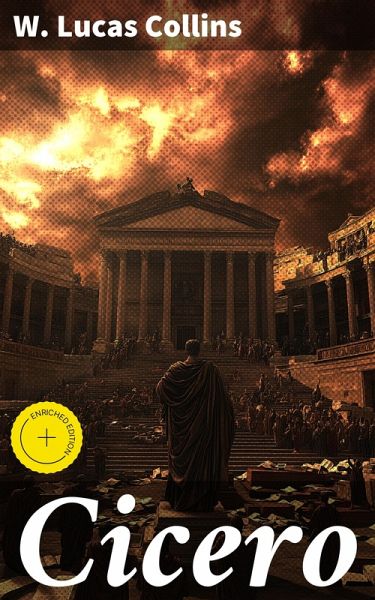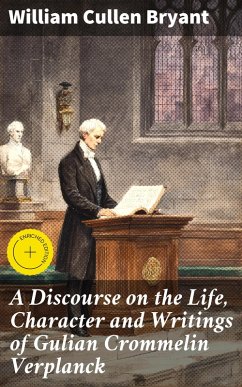
Cicero (eBook, ePUB)
Enriched edition. Exploring the Political Philosophy and Legacy of Roman Statesman
Kommentar: Dawson, Nina / Redaktion: Good Press

PAYBACK Punkte
0 °P sammeln!
W. Lucas Collins's 'Cicero' offers a profound exploration of the life and legacy of one of Ancient Rome's most influential figures. Through a blend of biographical narrative and critical analysis, Collins captures Cicero's multifaceted contributions to philosophy, rhetoric, and politics during a tumultuous period in Roman history. The author's meticulous attention to detail brings to life Cicero's public and private struggles, while his eloquent prose and scholarly tone invite readers to reflect on the broader implications of Cicero's ideas in contemporary society. Set against the backdrop of ...
W. Lucas Collins's 'Cicero' offers a profound exploration of the life and legacy of one of Ancient Rome's most influential figures. Through a blend of biographical narrative and critical analysis, Collins captures Cicero's multifaceted contributions to philosophy, rhetoric, and politics during a tumultuous period in Roman history. The author's meticulous attention to detail brings to life Cicero's public and private struggles, while his eloquent prose and scholarly tone invite readers to reflect on the broader implications of Cicero's ideas in contemporary society. Set against the backdrop of Roman civil strife, the book elucidates how Cicero's writings shaped the use of language in political discourse, making it a pivotal resource for understanding Roman culture and its enduring impact on Western thought. W. Lucas Collins is a distinguished classicist and scholar whose academic career has focused on the interplay between rhetoric and morality in ancient texts. His deep familiarity with the societal and political contexts of the late Roman Republic informs this work, as he deftly argues for Cicero's relevance not only as a historical figure but also as a luminary whose thoughts resonate in modern democratic principles. Collins's extensive research is evident as he weaves together Cicero's philosophical musings and practical politics, drawing insightful parallels to contemporary issues. Highly recommended for both scholars and general readers alike, 'Cicero' serves as an essential text for those interested in classical literature, philosophy, and the foundations of political thought. Collins's engaging narrative and critical insights make this book an invaluable addition to the libraries of anyone seeking to understand the complexities of leadership, rhetoric, and ethical considerations in governance, inviting readers to appreciate the wisdom of Cicero for generations to come. In this enriched edition, we have carefully created added value for your reading experience: - Hand-picked Memorable Quotes shine a spotlight on moments of literary brilliance. - Interactive footnotes clarify unusual references, historical allusions, and archaic phrases for an effortless, more informed read.
Dieser Download kann aus rechtlichen Gründen nur mit Rechnungsadresse in A, B, BG, CY, CZ, D, DK, EW, E, FIN, F, GR, H, IRL, I, LT, L, LR, M, NL, PL, P, R, S, SLO, SK ausgeliefert werden.













